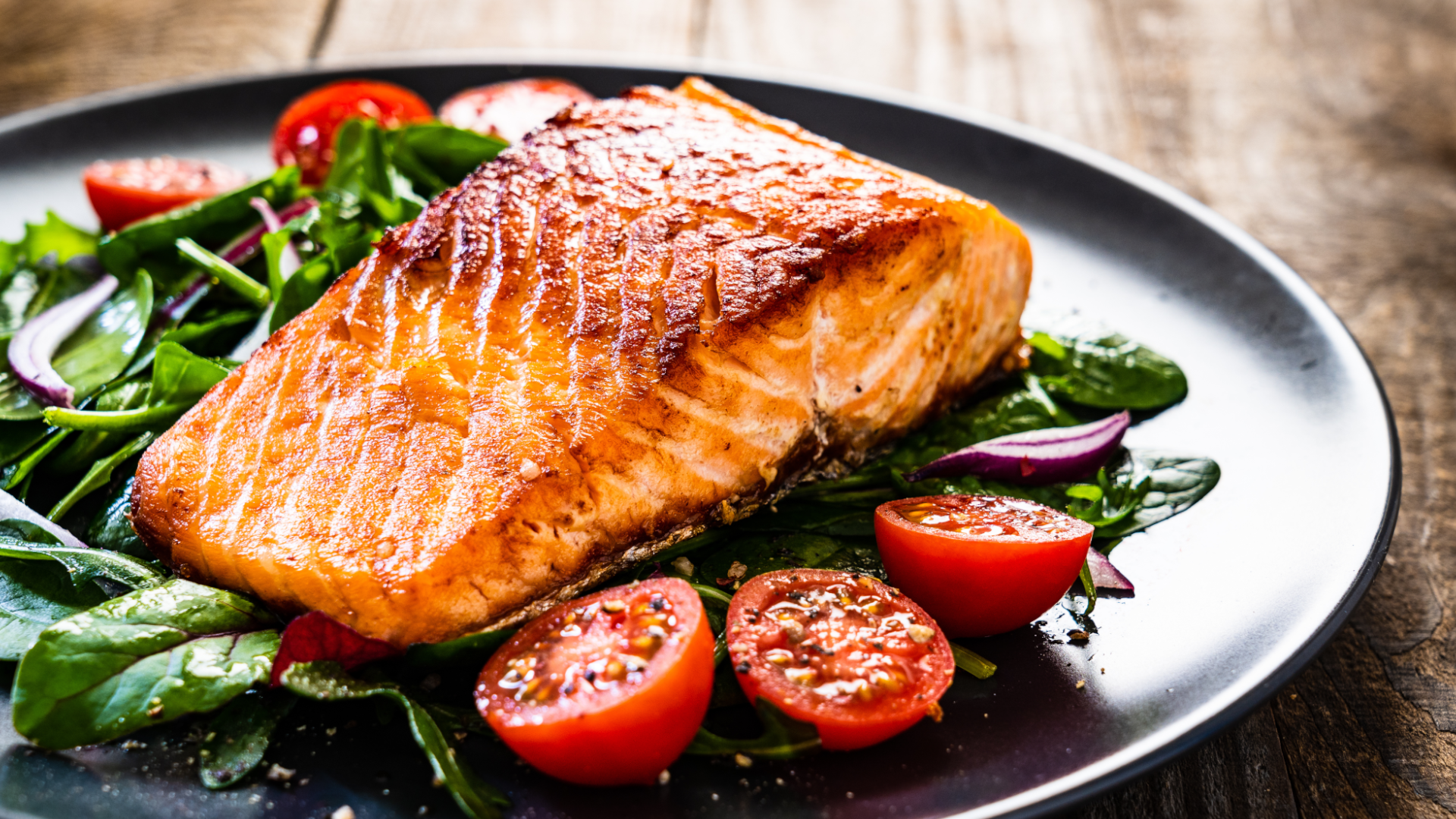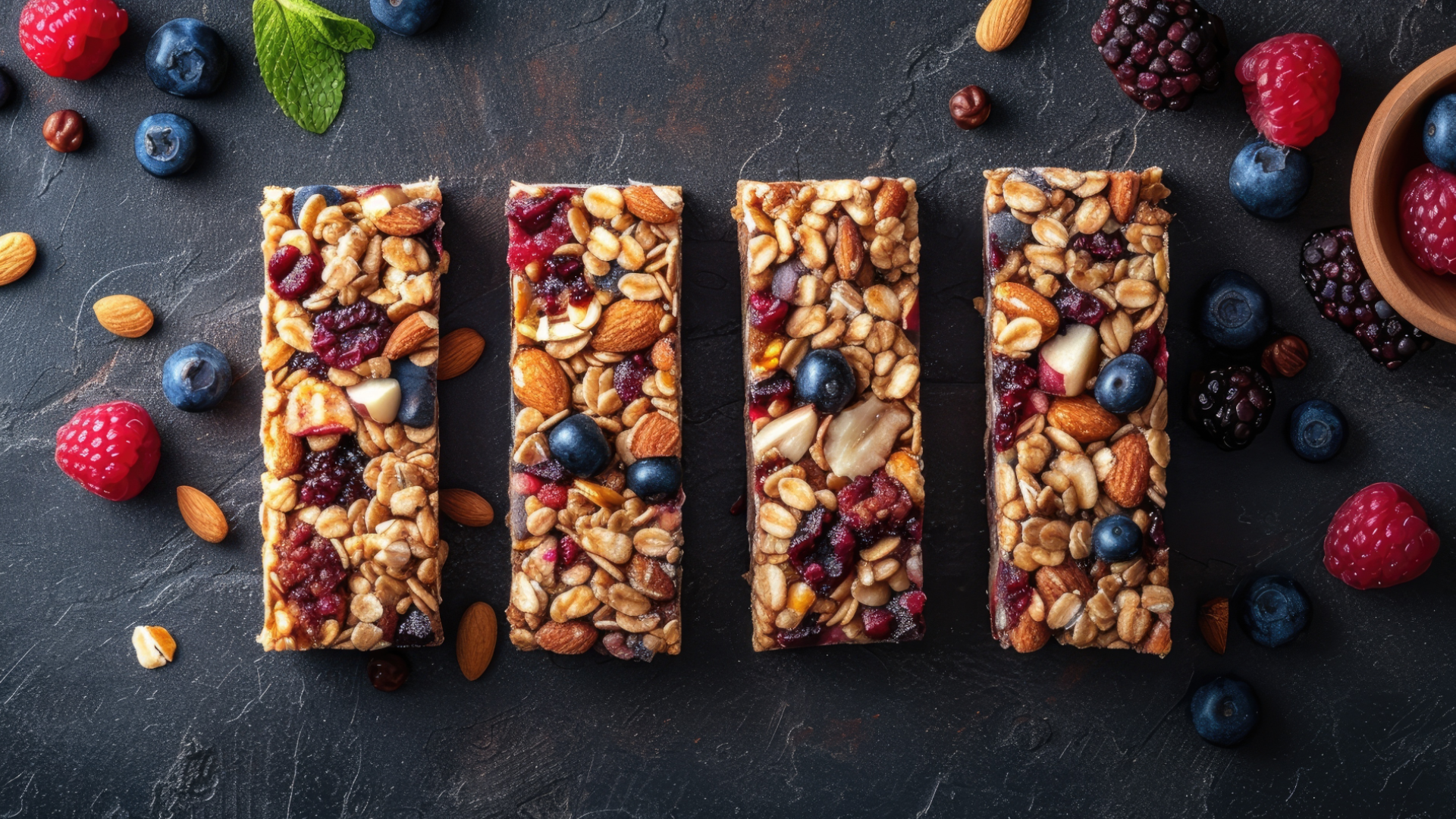Fuelling your body for your training is just as important as the training itself. If you don’t have the right energy or nutrients, you won’t get the most out of your workouts. But sports nutrition is still something many of us aren’t taking seriously.
Think about what it is that you are fuelling. It’s not just the workout itself. Good sports nutrition should:
So where do you start?
It’s time to go back to basics.
Sports nutrition is all about the macros
The most important part of sports nutrition is your macronutrients (macros): carbohydrates, proteins and fats.
The balance of these will depend on your personal training goals. But everyone who is taking part in sports should be looking at the quality of the food they eat from these supergroups, amping up the nutrients we need most as athletes.
From eating lean proteins to increasing your fruit and veg intake, let’s look at five healthy sports nutrition swaps you can make to maximise your training.
1 - Carbohydrates: Swap processed carbs for whole grains
Carbohydrates (carbs) are sometimes seen as the enemy in sports nutrition, but the reality is quite the opposite. Our bodies use carbohydrates as our main source of energy. It is stored as glycogen in the muscles, and during exercise, these glycogen stores can be depleted and will need restoring.
While processed and wholegrain carbohydrates provide energy, processed carbs such as white bread or pasta provide little additional nutrition. On the other hand, whole grains - also known as complex carbs - offer a more rounded addition to your sports nutrition. Wholegrains provide a balanced nutrient boost and can power your workouts for longer with slow-release energy.
Quick swap ideas:
- Change your white bread to a wholegrain loaf
- Instead of white rice, choose quinoa or brown rice
- Leave the sugary cereals and opt for porridge oats

2 - Proteins: Swap incomplete proteins for complete proteins
Proteins are an integral part of anyone's diet. It is important for a range of bodily functions, such as building and repairing muscle and bone tissue. It also plays a key role in hormonal and enzyme production and can even be a source of energy.
So there is no surprise that research has shown that those who take part in regular sports training require more dietary protein than those who are sedentary.
What is meant by dietary protein?
Proteins are effectively long chains of amino acids. Our bodies can produce some of these amino acids on their own - known as non-essential amino acids. However, there are nine amino acids that we need to consume from dietary sources. Any protein sources that have all 9 of those amino acids are referred to as complete proteins. These complete proteins can be found in sources such as eggs, meat, fish and tofu.
Quick swaps to increase your intake of complete proteins:
- Like a toast topper? Swap peanut butter for poached eggs
- Change up your vegetable curry by adding meat or tofu
- Struggling to get enough protein? Consider protein powder for a post-workout snack.
3 - Fats: Swap saturated for unsaturated
Fats have had a bad reputation in the past, but we now know they are not something to be feared. Fats are of huge importance for our bodies, particularly for athletes. Studies have shown that alongside providing essential fatty acids, healthy fat choices can also support metabolism, have anti-inflammatory effects and help fight fatigue.
There are two main types of fats: saturated and unsaturated. In general, unsaturated fats are healthier choices compared to saturated fats. Why? Saturated fats have been shown to contribute to increased cholesterol, which can increase the likelihood of cardiovascular disease. Cardio health is important for everyone, especially athletes.
On the flip side, unsaturated fats can provide health benefits. Omega-3 in particular, is an essential nutrient that our body can’t produce on its own. Gaining it from unsaturated fats helps our bodies tackle inflammation and support blood and membrane functions.
Quick swaps for healthier fat choices:
- Choose leaner meat. Switch out high-fat beef mince for a leaner alternative or turkey mince.
- Skip the deep-fried fish and opt for salmon instead, which is high in omega-3.
- Cooking with olive oil is a great substitute for butter or sunflower oil.

4 - Fruit and veg: Swap high-sugar snacks for nutritious alternatives
We all know we need to eat around 5 portions of fruit and vegetables every day. But studies have shown many of us aren’t meeting the quota. And it can be all too easy to stick to the same go-to fruit and veg options and not get a variety of nutrients from our choices.
Fruit and veg should be an integral part of any athlete's sport nutrition choices. Research has shown that the polyphenols found in fruit can increase performance in endurance sports and even improve recovery due to their anti-inflammatory purposes.
An easy way to increase your fruit and veg intake is to swap out high-sugar snacks for fruit or vegetable alternatives. To make sure you’re getting the greatest variety of nutrients, try and pick different coloured choices. The biggest variety of colours leads to the biggest variety of nutrients!
Quick swaps for nutritious snacks:
- Instead of potato chips, try making a healthy version at home, using kale or beetroot instead of potatoes.
- Instead of a sugary yoghurt compote, reach for some Greek yoghurt with fresh berries.
- Try making a smoothie. Throw some kale or spinach into a blender with your favourite fruit. Bananas and berries are great options.
5 - Drinks: Swap caffeinated energy drinks for electrolytes

Exercise requires energy, so, understandably, some of us reach for energy drinks to keep us going. And while energy drinks can help power your workouts, they must be taken cautiously. Caffeinated energy drinks can lead to negative side effects such as digestive issues and insomnia, which in turn can affect athlete performance.
Before reaching for an energy drink, replenish your body with an electrolyte option instead. Electrolytes contain essential vitamins and minerals to help your body rehydrate quickly, improve endurance during exercise and reduce fatigue post-workout.
Sports nutrition is basic nutrition
Good sports nutrition can make or break your workout plan. Planning your meals and snacks around the basic macronutrients and understanding how these can affect your performance and recovery is key.
Simple swaps can often make all the difference in keeping your sports nutrition in line with your training.
If you need help upping your protein intake, Crazy Nutrition’s Tri Protein can help.



